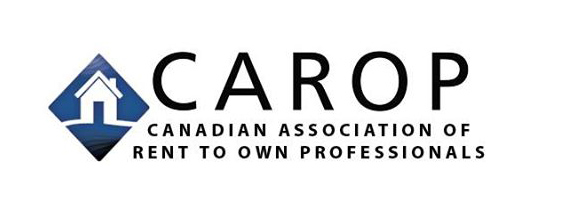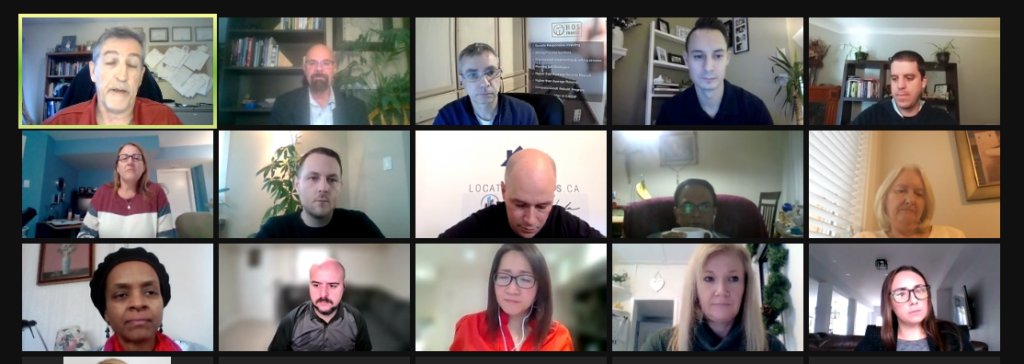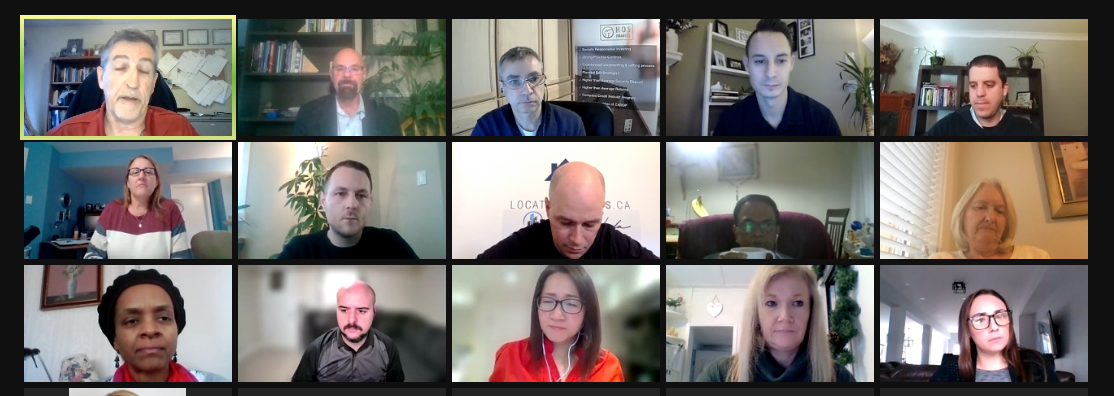October 29th was a rich day for members and guests of CAROP, as we enjoyed another annual “summit.” Because of the lingering pandemic, it was again entirely virtual, a 7.5-hour Zoom conference.
Four invited speakers dominated the agenda, two from within our group and two guests, with input that encouraged and challenged us.
The day started, though, with an introduction of the board by way of each identifying and discussing a significant challenge they are currently facing. It helped us identify with one another and realize that we are all in this together.
Brooke Shang, a CAROP member, gave an energetic presentation on real estate investing, outlining a variety of strategies that can lead to “retirement” in five years, doing only one deal a season. She defined “retirement” as reaching a level of financial freedom so that one can take the time to do whatever they want, not necessarily to stop investing in real estate.
She outlined five investment strategies, lease-options (rent to own) being her preferred one. On the one hand, you might say it was “preaching to the choir,” given the composition of the group, but you could also appreciate it as affirming, an encouraging way to begin the professional input.
Richard Moxley, a former mortgage broker who now focuses on helping Canadians fix, understand and improve their credit, then spoke about the credit assumptions that prevent successful RTO outcomes. There are three major false assumptions, he said: the assumption that the score the consumer sees is correct (there are, in fact, many scores); the assumption by the broker (or lender) that the report is correct (many, in fact, have errors that need to be corrected at the initiative of the consumer); and the assumption that a high score is enough (lenders, in fact, carefully review the details). He noted, too, that there is great variation in the competencies of brokers to assist clients.
What are the solutions? Obviously, the consumer needs to take the initiative to correct misinformation, or hire an expert, like himself, to do it for them. Much has changed in recent years, he said, so one needs to stay on top of things. Moxley has written a number of books and designed two courses: “The Mortgage Creducation course” and the “Life after Debt Creducation course.” Individual clients can also hire him to get credit errors repaired.
Barry McGuire, an Alberta real estate lawyer and educator whose popular Tales from the Trenches podcast features real-life stories of investor legal land mines, has assisted many rent-to-own providers with contracts and issues, was next up. He identified some national principles of interpretation that govern legal rulings on creative real estate contracts such as rent to own, but also asserted that “rent to own is local,” so we should know our provincial laws.
He then identified important steps we operators need to take to avoid disputes and win them if they can’t be avoided. Among other things, he emphasized the value of settling rather than litigating and the importance of paper trails and clear documentation.
Finally, he added a few “coaching tips” to help us to get our deals successfully completed. As usual, there was a question about the refund clause that CMHC requires, with McGuire’s advice that the presence of the clause is key, the actual amount less important.
The final presentation was from another CAROP member, Cam Rowland, who shared how successful his business had been by focussing on “sandwich leases.” “Tired and frustrated landlords are everywhere!” he asserted. If you can find them, you’ve already got an investor and a property; you simply need to match them up with an appropriate client.
He shared how he had initially stumbled onto the strategy when opportunities landed in his lap and showed how he structures the deals to make them win-win-win for everybody.
He concluded by giving a few tips on finding the properties and investors who might be happy to offload their rental management properties to rent-to-own providers.
As has become the pattern at the monthly Mastermind sessions, the final group session was simply a self-introduction of all those present, identifying themselves and their key issues and takeaways from the day.
But the day was not yet over; the society still needed to convene its AGM, a legal requirement but also an opportunity for members to help shape the Association.
Alfonso Salemi thanked all for the support he’s received in his first year as president, reported on the tremendous success of the monthly masterminds that were implemented this year, on the growth of membership both in the full and associate member categories, and noted the great improvement in functionality and look of the new website. He also thanked Dale Monette, who is stepping down from the Board after four years as VP of Finance and Treasurer.
In turn, members thanked Salemi for his strong leadership in his first year.
In other matters, the membership voted to keep the membership and associate membership fees the same for the coming year, at $299 and $149, respectively and approved a budget of $16,098.
Alfonso Salemi and Ron Geddert were re-elected to the board and Donna Cook was elected to fill the vacant position, all elections being for a two-year period. Those remaining on the Board for the second year of their terms are Zach Cahill, Jeff Belanger, Joe Migadel and Limor Markman (who is on a maternity leave-of-absence.)
Finally, a discussion ensued about returning to a site-specific format for next year’s Summit, with sentiments in favour of a hybrid model (both onsite and virtual) at a resort location, likely in Alberta, where activities like field trips and adventure and leisure activities can be attached to the event. A final decision will depend on a return to normal after the pandemic and the decision of the board.


